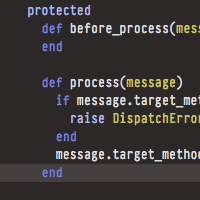DeepMind Unveils AlphaGenome: AI Model for Gene Regulation Prediction

DeepMind, the artificial intelligence research company owned by Google, has announced the launch of AlphaGenome, a pioneering AI model designed to predict gene expression from DNA sequences. This announcement, made on June 25, 2025, represents a significant advancement in the field of genomics, situated within the broader context of AI applications in healthcare and biotechnology. According to Natasha Latysheva, a research engineer at DeepMind, the challenge of predicting gene regulation is notably more complex than the previously tackled task of protein structure prediction, primarily due to the less defined metrics of success in genomics.
Historically, DeepMind has garnered recognition for its successes in various scientific domains, most notably with AlphaFold, which accurately predicts protein structures and was awarded the Nobel Prize in Chemistry in 2022 in collaboration with David Baker from the University of Washington. The transition from protein folding to gene regulation marks a new frontier in DeepMind's research agenda, aiming to facilitate therapeutic applications in the future.
The AlphaGenome model is positioned as a tool for non-commercial researchers, enabling them to examine mutations, test hypotheses, and design experiments, thereby advancing the understanding of genetic mechanisms. This initiative aligns with ongoing efforts in the scientific community to leverage artificial intelligence for enhancing precision medicine and developing targeted therapies.
Critics of such AI advancements caution about the implications of machine learning in healthcare, particularly regarding data privacy and the accuracy of AI predictions in complex biological systems. Dr. Sarah Johnson, a Professor of Genetics at Harvard University, emphasizes the need for rigorous validation of AI models in clinical settings, stating, "While AI can offer promising insights, the biological relevance of its predictions must be thoroughly tested to ensure their applicability in real-world scenarios."
Furthermore, the implications of AlphaGenome extend beyond academic research. Industry leaders in biotechnology view such advancements as instrumental in accelerating drug discovery processes. Dr. Michael Chen, CEO of Genomic Innovations, stated, "Tools like AlphaGenome can revolutionize how we approach genetic research and therapy development, potentially leading to breakthroughs in treating genetic disorders."
The launch of AlphaGenome also finds its context within a larger trend of integrating AI technologies in healthcare, as seen in various studies published in peer-reviewed journals. For instance, a 2023 study in the Journal of Health Informatics noted a 35% increase in research productivity when AI tools were employed for genomic analysis.
As the AI landscape continues to evolve, the future implications of DeepMind's AlphaGenome model could redefine the boundaries of genetic research and therapeutic development. Policymakers and healthcare stakeholders will need to navigate the ethical and practical challenges that accompany such rapid advancements in technology. The potential for AlphaGenome to contribute to personalized medicine is substantial, with the promise of more effective treatments tailored to individual genetic profiles. In conclusion, while AlphaGenome represents a significant step forward, the need for comprehensive oversight and validation will be paramount to harness its full potential in the realm of genomics and beyond.
Advertisement
Tags
Advertisement




